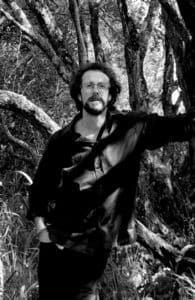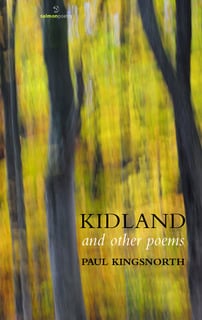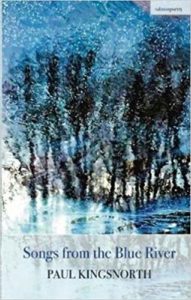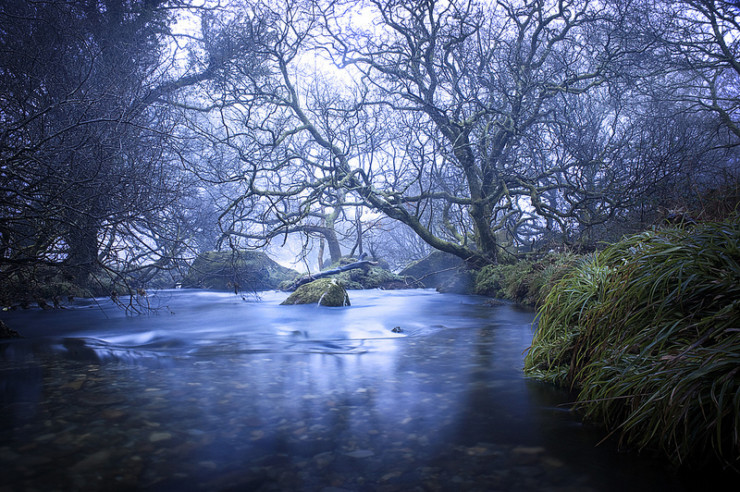British writer Paul Kingsnorth is best known for two novels, Beast and The Wake, and a collection of essays, Confessions of a Recovering Environmentalist. I’ve read and enjoyed Beast; it is a novel of frequent run-on sentences and no quotation marks, about a man living alone in a landscape devoid of people but with people’s artifacts remaining. I’ve started The Wake three times, this novel of an Anglo-Saxon landowner seeking revenge on Norman invaders. It’s partially written in Kingsnorth’s version of Old English; it also lacks quotation marks and capital letters. It was longlisted for the Man Booker Prize in 2014, and I’m determined to make a fourth attempt to read it.

Paul Kingsnorth
This unconventional form for his novels is of a piece with Kingsnorth’s environmental philosophy, articulated in a statement called The Dark Mountain Manifesto written with Dougald Hine in 2009. The manifesto serves as a kind of constitution for the Dark Mountain Project, self-described as “an international network of writers and artists searching for new stories for an age of upheaval.” It is a dark mountain for a dark view of what the future holds, coupled with what that future will require if individuals are to survive.
The manifesto is a statement employing both prose and poetry, summarized in eight principles. This first principle is “We live in a time of social, economic and ecological unravelling. All around us are signs that our whole way of living is already passing into history. We will face this reality honestly and learn how to live with it.” This idea of unraveling threads its way through all of Kingsnorth’s books. If you look for connections to the beliefs of the more radical environmentalists like Edward Abbey, you will find them. His Confessions of a Recovering Environmentalist and Other Essays (2017) provides a nonfiction approach to his philosophy.
These ideas of unraveling and radical environmentalism can also be found in Kingsnorth’s poetry. He’s published two collections, Kidland: And Other Poems (2011) and Songs from the Blue River (2018). Compared to his novels, each poetry collection is much more accessible: they use a familiar form (free verse) and capital letters and punctuation.
Both are rather slender volumes of 30 poems each, with a long title poem dominating. “Kidland” is a 14-page poem about Sarah, a woman from the south (or civilized England), meeting Roland, a man of the north (or uncivilized moorland). They meet and talk, they share a drink, and violence ensues. No one dies, but the woman returns to the south. Neither comes out of the experience “wiser,” but both eventually understand what has happened, and the world is unraveling.
Another poem from Kidland has a similar theme.
Something in the air

Through the winter woods their hounds are calling
as mist rises in bands between the birches.
There is a heavy, heartless beauty anchored
in the black soils of Europe,
silent and uncaring, overlooked
by its busy patrons, waiting
as the Earth turns towards the dark.
We have learned much about ourselves
and little about each other and now
there is something in the air.
Search for it in the soft fire of an autumn dawn –
you will see nothing, yet your future
is held in trust by the seas.
At the edge of the woods a black shape
bursts from the trees and panics
across the frost white field.
In Songs from the Blue River, the 10-page title poem is a kind of Book of Genesis epic, using a number of elements from the creation story to describe the origins of technological culture. It’s a creation story with the seeds of its own destruction embedded in it.
The poems are related thematically; here is Kingsnorth standing at the end of that creation story described in the title poem.
Free black earth

when the light was low
and I was in the black fields
with frost across my shins
and the stubble of the corn gone white.
And when I turned away
and headed slowly home
towards the reckoned plastic of my home
I couldn’t stomach anything
I couldn’t look at anyone. I only hid
and dreamed of all the wreckage of my world
heaped up and burned to hell
so I could stand and breathe again
on free black earth.
In both volumes, Kingsnorth uses the imagery of winter, a dead time, to signify the ending of culture and society as we know it. You can frame it as a pessimistic view of the future or an optimistic view of what will be required to be part of that future. As in the novel Beast, Kingsnorth’s poetry is continually looking at the landscape, the landscape of the future superimposed on the landscape of the past.
Related:
Dougald Hine and Paul Kingsnorth discuss the Dark Mountain Project (2014)
My review of Beast by Paul Kingsnorth
Photo by Algy O’Connell, Creative Commons, via Flickr. Post by Glynn Young, author of Poetry at Work and the novels Dancing Priest, A Light Shining, Dancing King, and the newly published Dancing Prophet.
__________________________

“I require all our incoming poetry students—in the MFA I direct—to buy and read this book.”
—Jeanetta Calhoun Mish
- “Everybody in Amsterdam Speaks English.” Not. - December 4, 2025
- Poets and Poems: Hedy Habra and “Under Brushstrokes” - December 2, 2025
- Happy Thanksgiving, from Tweetspeak Poetry (and Henry Wadsworth Longfellow) - November 27, 2025

L.L. Barkat says
Oh, that photo! I just want to live in it. Beautiful choice, Glynn.
(Hard poetry, this. I like that you balanced it with a photographic image that seems like something imperviously lovely that we can “feel…in the deep heart’s core.”)
Maureen says
What evocative, dystopian poems! And yet Kingsnorth can still imagine that “free black earth” so fecund and what can “sing to me in winter”.
Will Willingham says
I like this idea that an optimism in this time requires such a stark realism. 🙂